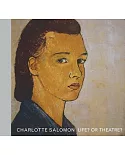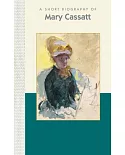One of the leading lights of the Impressionist movement, Pierre-Auguste Renoir (1841–1919) remains a towering figure in art history with enduring public appeal. Sunbathed, charming, and
sensual, his work shows painting at its most lighthearted and luminous, while championing the plein air and color innovations of his time.
Renoir’s oeuvre was prolific, with some several thousand works in his lifetime. Much influenced by forerunners such as Courbet, Degas, Manet, Delacroix, he worked with contemporary peers such
as Monet to explore fresh uses of color and brushwork, rendering texture and depth with different-hued daubs. Drawn to intimate and tender human scenes, his subjects include lovers, mothers,
and numerous nudes.
As his career progressed, Renoir investigated different styles and techniques, shifting away from the feathery Impressionist touch to a more robust, classical corporeality, sometimes called
his “Ingres period,” and later to monumental pieces such as The Bathers. From the abundant output of his lengthy career, this essential artist introduction selects key Renoir works to explore
his innovations in the art of painting, as much as his traditions in pursuit of beauty, harmony, and the female form.





















